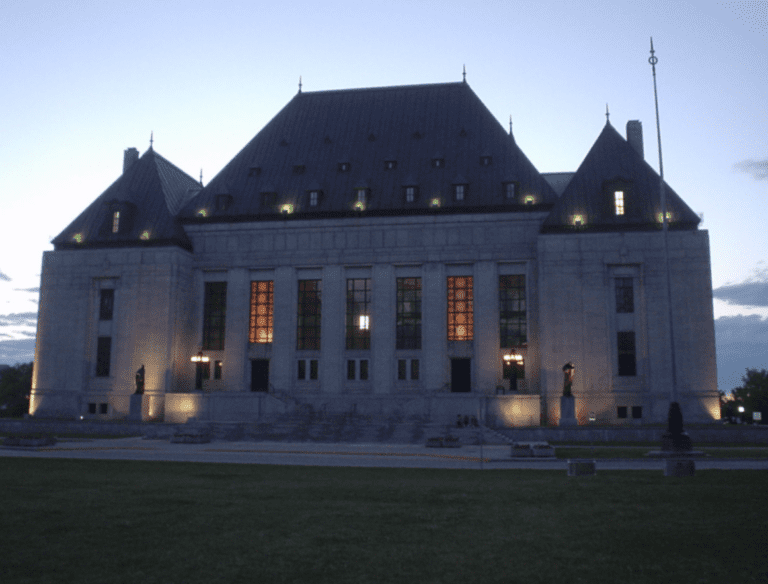John Carpay, The Interim
Will Bill C-11, the Online Streaming Act, empower the federal government to censor controversial and unpopular speech on the internet?
Not immediately. But the Online Streaming Act (OSA) is a significant and dangerous first step towards government control of the internet.
The stated purpose of the OSA is not particularly controversial: to bring influential streaming services like Netflix, Disney and Spotify under the authority of the Canadian Radio-television and Telecommunications Commission (CRTC).
But under the OSA, the CRTC’s new authority will not be limited to these large entertainment giants. Rather, the OSA will empower the CRTC to assume jurisdiction, via regulations, over any “program” (audio or audiovisual online content) that is “monetizable” because it “directly or indirectly generates revenues.”
The OSA would give the CRTC new powers to regulate virtually any online streaming service (also known as a “platform”), and to regulate podcasts and videos that are accessible in Canada on such a platform. In the long run, the CRTC could end up regulating much of the content posted on major social media, even where the content is generated or uploaded by religious, political and charitable non-profits.
The sponsor of the OSA, Heritage Minister Pablo Rodriguez, has asserted repeatedly that Bill C-11 does not target Canadians who create and post their own podcasts and videos. The Minister’s claim is partially true, as the OSA specifies that users are not targeted as broadcasters, and the CRTC will not regulate videos and podcasts that do not generate revenue for the person who uploads them or owns the rights over them. However, other sections of the OSA create loopholes that do extend the power of the CRTC to regulate podcasts and videos. What the OSA gives with the right hand, it takes back with the left.
University of Ottawa law professor Michael Geist has been a close observer of Bill C-11 since the Trudeau government introduced this legislation in February. He argues that once the OSA is passed into law, the CRTC can regulate everything from podcasts to TikTok videos as a “program.” As individuals, Canadians using the internet will not be regulated like broadcasters. However, the podcasts and videos that Canadians produce and upload could fall under CRTC authority as a “program.” Professor Geist states that “the potential scope for regulation is virtually limitless, since any audio-visual service anywhere with Canadian subscribers or users is caught by the rules.” The CRTC will become more powerful than ever before, able to require platforms to prioritize certain podcasts or videos, which effectively means de-prioritizing other podcasts and videos. The entire audio-visual world will be fair game.
According to Senator Paula Simons, the OSA will dramatically increase the potential for regulatory gatekeeping by giving the CRTC new power to force platforms to privilege specific kinds of “Canadian” content. Large legacy media corporations, with their established funding and production capacity already in place, can see to it that they qualify as sufficiently “Canadian” and will therefore not be affected much by the OSA.
Carleton University journalism and communication professor Dwayne Winseck argues that “while individual social media users will not be regulated by the CRTC, their expressions, pictures, messages, life history, etc. will now be defined as a broadcasting program and in some cases regulated as such.”
The OSA “punts far too much power and rule-making authority to the CRTC” by allowing the CRTC to define a wide range of human expression as “broadcasting programs.” Ironically, most content produced by individual Canadians won’t qualify as “Canadian content.”
Bad laws and good laws move forward incrementally, step by step. Whether it is slavery, taxes, the environment, abortion, LGBTQ+ or capital punishment, laws usually move in the right (or wrong) direction step by step, over the course of years or decades.
If Bill C-11 is passed and the OSA becomes law, life in the weeks and months thereafter will go on as before. The CRTC is not likely to start flexing its bigger muscles immediately. It will take more than just weeks or months for the CRTC to learn how to use the new powers given to it by the OSA. But human nature and the enjoyment of power are such that it is highly likely that the CRTC will eventually start to throw its new weight around, making demands on religious, charitable, political and other non-profit organizations to bow to CRTC decrees about their “programs.”
Further, the OSA could prove to be the first of other laws that further extend government control over what we see, hear, read and think.









